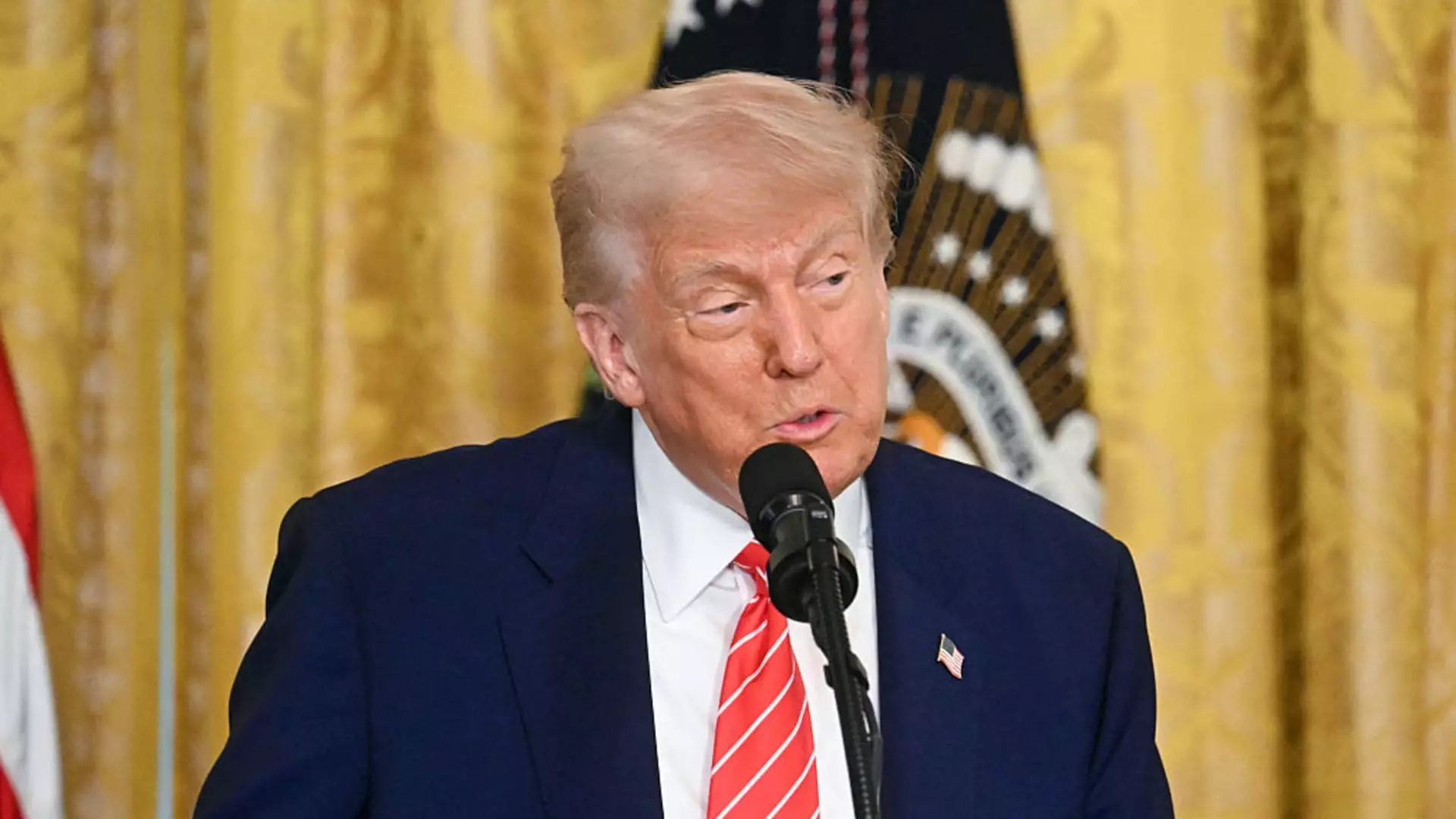On what some might deem an audacious revival, President Donald Trump is recommitting to an imperial mandate: the “most favored nation” (MFN) policy, a contentious approach to drug pricing that aims to ensure U.S. pharmaceutical costs align more closely with international rates. This ambitious policy aims to expose how foreign nations allegedly enjoy the benefits of American innovation while American patients are left bearing the brunt of high drug prices. According to White House officials, this renewed deal is not just a rehearsed production of an earlier act but is expected to go much further, potentially impacting a broader array of medications than before. The premise is simple: if other countries benefit from lower drug prices, why shouldn’t Americans? Yet behind this seemingly benevolent ideology lies a quagmire of economic implications and political theatrics.
The Pharmaceutical Industry’s Standoff
The pharmaceutical industry, a titan under constant scrutiny, is already bracing itself for the ramifications of this bold move. Reactions from major drug manufacturers have ranged from skepticism to outright condemnation, arguing that the MFN policy jeopardizes their profitability and stifles essential research and development. With drug prices in the U.S. generally towering over those in other developed nations—sometimes reaching 10 times more—the pressure to lower costs has never been more acute. However, many industry experts warn that an MFN policy may not yield the results it promises. The complex economics of the global drug market suggest that even if U.S. prices were to fall, it could result in pharmaceutical companies scaling back their overseas operations, forcing Americans to continue shouldering the exorbitant costs without the expected relief.
Risking Innovation for Immediate Relief
Trump’s dramatic claim that drug prices could plummet by an astounding “59%, PLUS!” is emblematic of the kind of dramatic rhetoric that accompanies his policies. However, for any policy this major, a vital question lingers: what is the long-term cost of short-term savings? Experts have posited that reduced profits for pharmaceutical companies would not merely affect their immediate financial health but could also stymie the innovation pipeline that leads to new medicines. And given that approximately 70% of pharmaceutical profits worldwide originate in the U.S., a decrease in the market’s overall health could lead to fewer breakthroughs in treatment options for Americans in the long run. The dire warning from experts resonates: if drug companies retreat from foreign markets to maximize their dwindling profits, all Americans will ultimately lose.
The Influence of Public Sentiments
Public sentiment around drug prices has reached a boiling point. A striking 75% of Americans reported finding prescription drugs unaffordable, according to a recent KFF poll. Trump’s administration is tapping into this frustration, harnessing public anger to justify drastic measures. In light of rising costs, Americans are understandably eager for solutions, which may lead them to support the MFN policy without fully grasping its potential drawbacks. By framing the conversation around the emotional landscape of healthcare affordability, the administration might distract the public from the potential pitfalls of their strategies, effectively playing a political game that prioritizes immediate market fixes over sustainable healthcare reform.
The Legal Battle Ahead
Even if the MFN policy gains traction, its implementation is bound to face formidable resistance. The pharmaceutical industry has a proven track record of leveraging legal frameworks to challenge policies like this, and the potential for prolonged legal battles could hinder any immediate benefits to American consumers. The Biden administration rescinded a previous iteration of this policy following legal challenges, and there is speculation that any new revival may face similar hurdles. Nevertheless, the current administration does have alternatives to the MFN approach, such as the recent provisions in the Inflation Reduction Act granting Medicare more authority in negotiating drug prices.
Reindustrialization and Domestic Manufacturing
Yet another layer to the ongoing saga is Trump’s push toward reindustrializing U.S. drug manufacturing. Plans to impose tariffs on imported medicines serve to bolster domestic production, a strategy that aligns with broader economic goals to create jobs and stimulate the national economy. While many pharmaceutical companies have initiated domestic production expansions, the efficacy and necessity of tariffs are under intense scrutiny. The ongoing tension between fostering American production while lowering drug costs remains an intricate balancing act—one that may find itself mired in political and economic complications in the coming months.
Trump’s renewed effort to tackle drug pricing, while bold and provocative, raises essential questions about the future of healthcare in the United States. As the debate unfolds, the stakes are higher than ever, and before long, it will be upon us to assess whether this audacious gamble will truly yield the promised savings or simply add to an ongoing cycle of frustration and need for reform.

